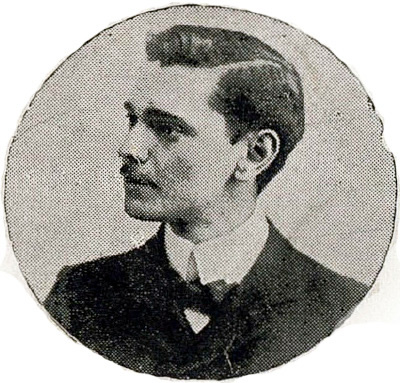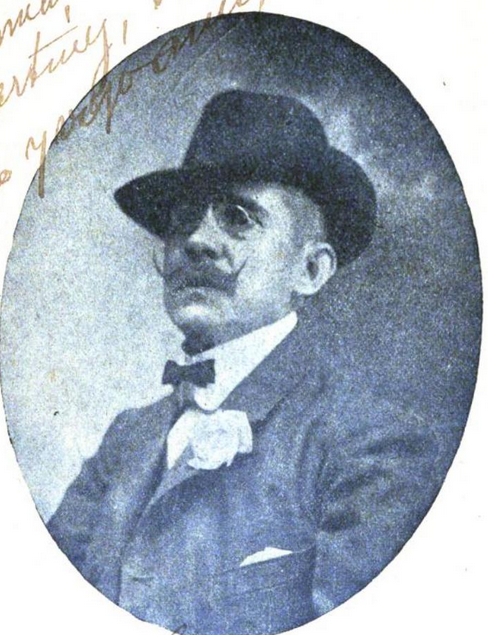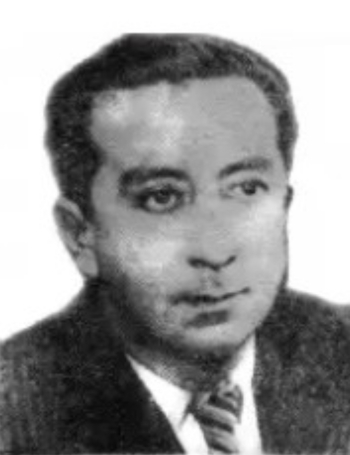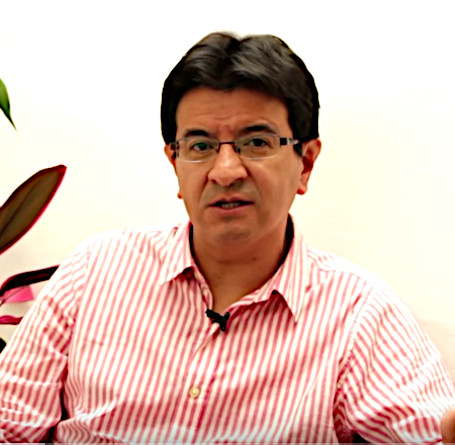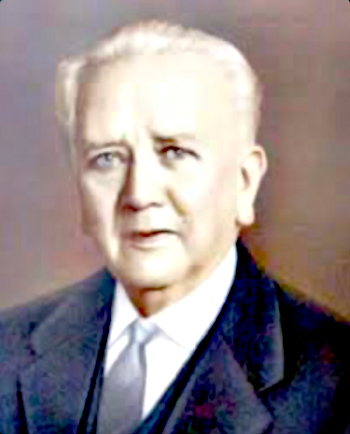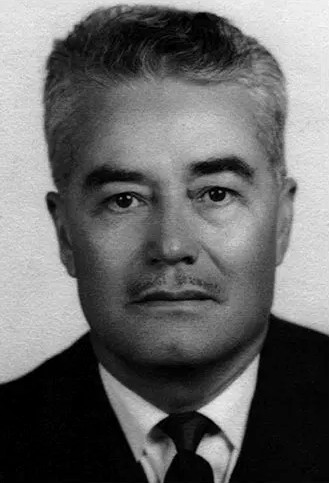Emilio Gallegos del Campo (Guayaquil, September 20, 1875 – May 15, 1914) was a poet, playwright, journalist and diplomat. In 1898 General Eloy Alfaro, who was a friend of his family and called him “Emilito,” appointed him Consul of Ecuador in London, a post which he held until 1901. In Europe, he was decorated by the French government with the Legion of Honor. Together with his brother, he founded several newspapers, including “América Modernista,” which published poets of the modernismo movement. His brother was the poet Joaquín Gallegos Del Campo whose son was the celebrated novelist Joaquin Gallegos Lara.
Continue reading “Emilio Gallegos del Campo”Month: March 2021
Adolfo Hidalgo Nevares
Adolfo Hidalgo Nevares, sometimes spelled Nevarez, (Guayaquil, March 18, 1891 – Quito, 1934) was a doctor, writer and poet. Under the pseudonym Máximo de Bretal he wrote articles for El Guante magazine on topics such as politics, literature and poetry. He also wrote for El Telégrafo of Guayaquil and El Universitario of Quito. In 1920 he was appointed Deputy of Guayas. In 1925 he became a professor at the University of Guayaquil’s new Dentistry and Veterinary schools, and in 1926 he was named Minister of Public Education. He led a bohemian life and had an on and off again addiction to morphine which he sometimes used in the company of some of the members of the Decapitated Generation, a group of young Ecuadorian poets who died young by suicide. He too died by suicide in 1934, at the age of 43.
Continue reading “Adolfo Hidalgo Nevares”Nicolás Augusto González
Nicolás Augusto González Tola, also N.A. González (Guayaquil, April 14, 1858 – Buenos Aires, Argentina, January 18, 1918) was an Ecuadorian writer, playwright, novelist, journalist, poet, historian and diplomat. His plays in verse are among his best known works, which include, “Hojas secas,” “Entre el amor y el honor,” and “Amor y Patria,” which he co-wrote with Alfredo Baquerizo Moreno (President of Ecuador from 1916-1920). “Cuestión Histórica, el Asesinato del Gran Mariscal Ayacucho,” (written between 1887 and 1889), is perhaps his most important and controversial work, in which he accuses General Juan José Flores of being behind the assassination of Antonio José de Sucre, prompting hatred and persecution from Flores’ son Antonio Flores Jijón (President of Ecuador from 1888-1892). Due to his political views and polemic writing he was exiled to other countries, such as Peru, Colombia, Guatemala and Spain. From 1908-1913 he lived in Spain as a diplomat, and published there his poetry book, “Humo y cenizas” (1908) and his novel “La Llaga” (1908). He returned to Guayaquil in 1917 where a special committee chaired by José Luis Tamayo (President of Ecuador from 1920-1924) awarded him the “Golden Lyre”.
Continue reading “Nicolás Augusto González”Jorge Reyes
Jorge Reyes (Quito, 1905-1977) was an Ecuadorian poet, journalist, essayist and socialist. He directed the literary section of the socialist newspaper La tierra, and for many years he was an editorial staff writer for the newspaper El Comercio. His poetry books include: “Treinta poemas de mi tierra” (1926) “Quito, arrabal del cielo” (1930) and “El gusto de la tierra” (1977).
Continue reading “Jorge Reyes”Leovigildo Loayza Loayza
José Leovigildo Loayza Loayza (Piñas Canton, El Oro Province, October, 1905 – Guayaquil, August, 1971) was an Ecuadorian poet. He worked at the Guayaquil branch of the Central Bank of Ecuador, and at the César Borja Lavayen night school. In 1972, a high school named after him was founded in the town where he was born – El Colegio Nacional Técnico Leovigildo Loayza Loayza. He authored the lyrics of the pasillo songs “Obsesión” and “Madrigal de seda,” and also wrote poems and hymns.
Continue reading “Leovigildo Loayza Loayza”César Chávez Aguilar
César Chávez Aguilar (Tulcán, Ecuador, 1970 – November 10, 2022) was an Ecuadorian writer, bibliographer and librarian. He studied law at the Central University of Ecuador. His stories and essays were published in national and international magazines such as: Línea Imaginaria, Letras del Ecuador, and Encuentros (National Magazine of Culture). He carried out bibliographic research for the Municipality of Guayaquil and for the Benjamín Carrión Cultural Center in Quito, where he was employed as the library director. In 2012 he published “Herir la perfección,” his first book of short stories.
Continue reading “César Chávez Aguilar”Pío Jaramillo Alvarado
Pío Jaramillo Alvarado (Loja, May 17, 1884 – July 24, 1968) was an Ecuadorian writer, liberal lawyer, politician, law professor and sociologist. His best-known book El indio ecuatoriano (1922; The Ecuadorian Indian), established him as one of Ecuador’s leading intellectuals and a key participant of the indigenista movement. Born to a white mestizo family, he critiqued indigenous realities from a non-indigenous perspective, which is typical of early twentieth century indigenistas. In 1940 he led the Ecuadorian delegation to the Pátzcuaro Congress in Mexico that founded the Interamerican Indigenist Institute (III). Three years later he helped found the Ecuadorian Indigenist Institute (IIE), for which he subsequently served as director. He contributed essays to newspapers throughout the country, most significantly under the pseudonym Petronio in the liberal newspaper El Día.
Continue reading “Pío Jaramillo Alvarado”Gonzalo Rubio Orbe
Gonzalo Rubio Orbe (Otavalo, Imbabura, June 29, 1909 – October 24, 1994) was an Ecuadorian anthropologist, historian, biographer and educator. He was a protégé of Pío Jaramillo Alvarado, a key leader of the indigenista movement. Rubio’s works represent some of the earliest anthropological assessments of indigenous societies in Ecuador. His principal book is Los Indios Ecuatorianos (1987; The Ecuadorian Indians). From 1971 to 1977, he directed the Inter-American Indian Institute (III), based in Mexico. He also wrote biographies on notable Ecuadorians, such as Luis Felipe Borja and Eugenio Espejo. An indefatigable educator, he continued to lecture to university students until his dying day.
Continue reading “Gonzalo Rubio Orbe”
